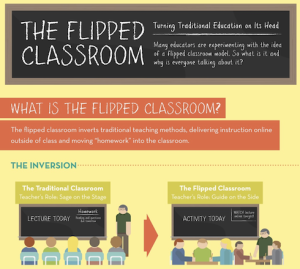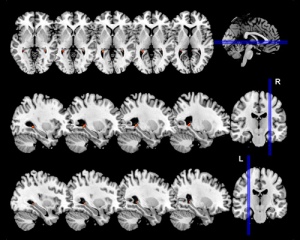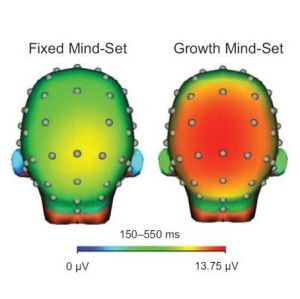A few weeks back a cohort of year 9 students took part in the school’s annual ‘Learning Skills Weekend’.
To give the weekend some context…
The original idea was the brainchild of a certain PE teacher and Head of Year at Newlands – Miss Ceri Burns. Following some teacher CPD on the topic of ‘Revision’, Ceri was inspired to make the learning of the students in her year group more effective.
Her aim was to combine an outdoor activity weekend with some innovative classroom-based sessions so that students gained an unforgettable learning experience. She gathered a team of teachers together to support her and came up with the ‘Learning Skills Weekend’ at Kingswood in Ashford, Kent under the project title: ‘Learning to Learn’.
The learning sessions would focus on the following four ideas: Struggle to Succeed, Making Links, Learning from Mistakes and Teaching Others.
This year…
It was decided based upon the success and impact of the first year (2014) the project would become a key part of the year 9 educational offer and as such the decision to offer the weekend to students continued. This year Miss Gratton led her year group and team of willing volunteers (teachers) to Kingswood.
The outcomes…
One only has to look at the responses students produced during a reflection session (conducted upon their return to school) to see the impact their participation over the course of the weekend has had on them. A select few have been embedded below:
Olivia Thompson November 18, 2015 at 12:22 pm
This weekend at Kingswood has been beneficial and has changed my way of thinking and learning whether it’s in lessons or outside. I learnt that struggle is success and that it is ok to ask questions and struggle instead of finding a solution straight away therefore feeling like you haven’t achieved or worked hard enough. In Kingswood you learn how to say yes and you learn a lot about yourself, like how you work in a team, what activities you enjoy or are good at, your fears and overcoming them, how resourceful you are etc. If you don’t get a question right, don’t give up otherwise you will never succeed, you need to have a growth mind set and have a fixed mind-set on what you want to achieve.
Ciara says November 18, 2015 at 12:18 pm
This weekend at Kingswood has been very beneficial towards my approach to learning because I have developed new and helpful skills such as team work, collaboration, how to make links, making decisions and knowing the consequences and finally learning that struggle is good. These skills have changed my view on having a fixed mindest in school and out of school. By participating in the activities I now have gone from having a fixed mindset to a developing growth mindset meaning that I now have a positive perspective on my learning and will not say ‘I can’t’ to anything. I will practise to improve instead of giving up. My social skills have improved over the past few days as I am more confident in taking part in activities with new people meaning that I can get everyone involved in the discussion.
Lili Omar says November 18, 2015 at 12:00 pm
This weekend had been a very informative 2 days, teaching me about myself and skills I can incorporate into my learning. Even though I already had the skills of teamwork, asking questions and speaking up, I feel as though Kingswood has enhanced them to help me to be a better learner and student for my later years at school. In the making links session [….] I had to describe a Lego tower I built up to a partner and we asked questions a lot helping sure the drawing was right. Even though it was wrong I learnt that if she didn’t ask questions the drawing would have been even more incorrect. In the decisions and consequences session, I learnt that being distracting myself wouldn’t help me learn and to have a growth mind-set instead of a fixed mind-set is better. Growth mind-sets will make help you be a stronger learner in more subjects and fields in life.
* The complete collection of student reflections can be found at the ‘Learning Skills Weekend’ Blog – https://y9learningskills.wordpress.com)
What next?
The work on ‘Learning to Learn’ for both students and teachers doesn’t stop here. Over the coming weeks members of the school’s ‘Teaching and Learning Team’ will be constructing a series of follow up workshops that will be delivered during pastoral sessions with the aim of ensuring the development and progress the students made over the course of the weekend is revisited and reinforced.
In the meantime…
Don’t be afraid to experiment and attempt to embed the following approaches and strategies into your classroom practice (particularly with the year 9 and year 10 cohorts) as a way of reinforcing the approaches introduced at the ‘Learning Skills Weekend’.
Scenario 1
“If a student expresses the sentiment that they ‘can’t do it’, are finding something ‘too hard’ or are simply disconnecting from the lesson/task…”
Response
Don’t be afraid to make transparent and engage in dialogue regarding the growth mindset concept. Simply asking them (or a participant on the weekend) what mindset might be controlling their response or reaction to their learning may be enough to promote re-engage them with the task/works presented.
Scenario 2
“Your students are progressing through the work and tasks set at an extremely fast rate. Have you…”
Response
… planned a question/task that will ‘stump’ them? Made them think at a deeper level and challenged their learning in relation to the skills/knowledge presented?
Scenario 3
“Did you just have a student say: ‘We did this in Maths!’”
Response
Ask your students to record (using their green pen) the cross-subject link they have just made. Get them to note this down as a record of the cross-curricular link in skills and knowledge they are developing.




